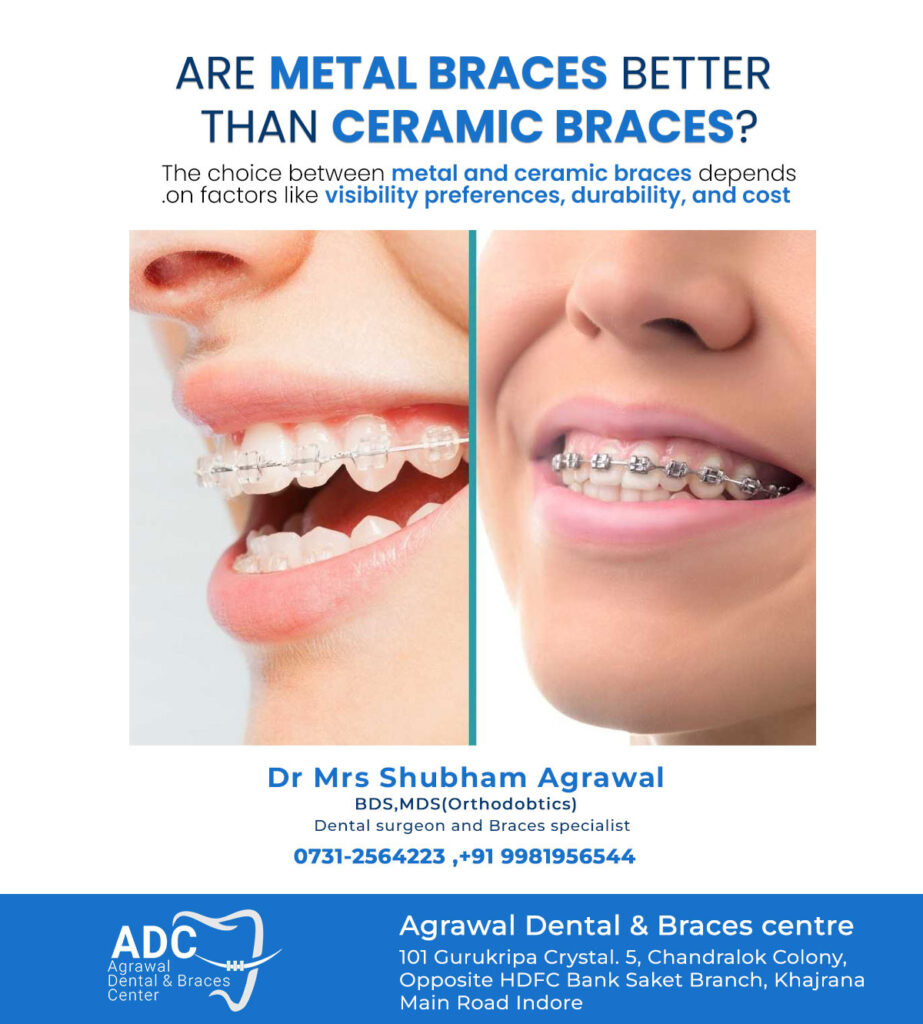Are Metal Braces Better than Ceramic?
When getting braces, you might wonder which type is better – metal or ceramic? Both have pros and cons. Before making any decision by yourself, consult your doctor.
The decision between metal and ceramic braces ultimately depends on your preferences, budget, and orthodontic needs.
While metal braces are robust and cost-effective, ceramic braces offer a more discreet appearance and enhanced comfort. Consult with your orthodontist to determine the best option for your smile journey.

What are Metal Braces
Metal braces are strong and durable. They are made of high-quality stainless steel, which can withstand much pressure. This makes them suitable for fixing even severe misalignments.
One significant advantage of metal braces is their affordability. They are often less expensive than ceramic braces, making them a budget-friendly choice for many families. Metal braces come with colorful bands, allowing you to personalize your look.
You can choose your favorite colors or switch them up during each adjustment, making the orthodontic journey a bit more fun.
While metal braces are noticeable, advancements have made them smaller and less conspicuous than before. Some people even embrace the look as a cool accessory.
What are Ceramic Braces
Ceramic braces are known for their clear or tooth-colored brackets. They blend in with your teeth, making them less noticeable than metal braces. This aesthetic advantage appeals to those who want a more discreet option.
Ceramic braces are generally smoother than metal braces. They are less likely to irritate the cheeks and lips, providing a more comfortable experience for the wearer.
Ceramic braces are resistant to stains, maintaining their clear or tooth-colored appearance throughout the treatment. This can be particularly appealing for those concerned about the visual impact of braces.
Conclusion
The choice between metal and ceramic braces depends on personal preferences, budget, and the severity of the orthodontic issues. Discussing these factors with an orthodontist will help determine which type is better suited for individual needs and preferences.
Dr. Shubham Agrawal
Dentist

Leave a Reply